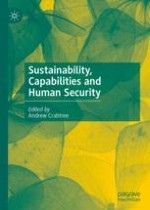2020 | OriginalPaper | Buchkapitel
6. Human Development Thinking About Climate Change Requires a Human Rights Agenda and an Ontology of Shared Human Security
verfasst von : Des Gasper
Erschienen in: Sustainability, Capabilities and Human Security
Aktivieren Sie unsere intelligente Suche, um passende Fachinhalte oder Patente zu finden.
Wählen Sie Textabschnitte aus um mit Künstlicher Intelligenz passenden Patente zu finden. powered by
Markieren Sie Textabschnitte, um KI-gestützt weitere passende Inhalte zu finden. powered by
